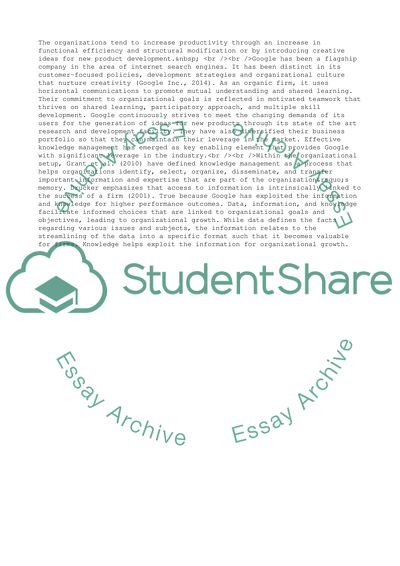Cite this document
(Knowledge Management System of Google Inc Case Study, n.d.)
Knowledge Management System of Google Inc Case Study. Retrieved from https://studentshare.org/management/1827144-knowledge-management-essay
Knowledge Management System of Google Inc Case Study. Retrieved from https://studentshare.org/management/1827144-knowledge-management-essay
(Knowledge Management System of Google Inc Case Study)
Knowledge Management System of Google Inc Case Study. https://studentshare.org/management/1827144-knowledge-management-essay.
Knowledge Management System of Google Inc Case Study. https://studentshare.org/management/1827144-knowledge-management-essay.
“Knowledge Management System of Google Inc Case Study”. https://studentshare.org/management/1827144-knowledge-management-essay.


